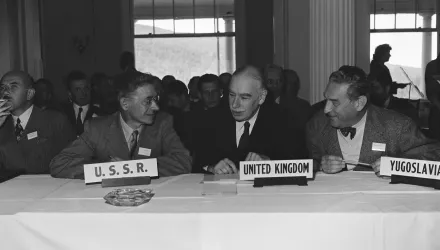International Security is America's leading peer-reviewed journal of security affairs.
Summary
The use of evolutionary models to examine political behavior in international relations has been the subject of much debate, but serious scholarly work has generally been lacking, in part because the causal mechanisms have not always been clearly explicated. An evolutionary psychological framework can correct this deficit and benefit research in at least three major areas of international relations: (1) how political groups such as states are perceived and represented by individuals and groups; (2) how coalitional action is facilitated among states; and (3) sex differences in coalitional behavior. Hypotheses are offered in each of these areas to more clearly demonstrate the psychological mechanisms that are the bridge between evolutionary theory and political behavior in the international system. The social and political landscape of the ancestral environments in which humans evolved strongly suggests that the psychological architecture of humans possesses specialized design for coalitional living that continues to guide behavior in the modern political world. These evolved mechanisms structure human motivation and engagement in areas including leadership and war.
Lopez, Anthony C., Rose McDermott and Michael Bang Peterson. “States in Mind: Evolution, Coalitional Psychology, and International Politics.” Fall 2011
The full text of this publication is available in the link below.



